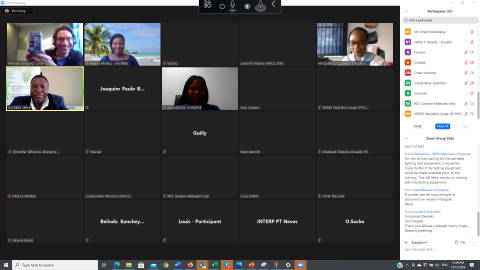The SADC member states welcome the introduction of new efficient lighting standards
The SADC Cooperation in Standardization (SADCSTAN) Executive Committee at its 41st sitting on 28th April 2021, reviewed and approved minimum energy performance standards (MEPS) for lighting products.
This important decision was preceded by a regional consultation process that lasted several months. A series of online meetings were held with the SADCSTAN Regional Technical Committee to discuss technical notes, content and the selection of metrics for the draft MEPS for lighting. SADC member states’ input into the draft MEPS were a vital contribution that helped to strengthen the standards.
An endorsement of the concept was already visible in December 2020 at the regional finalisation meeting, where all MS attending indicated they would vote to adopt the draft harmonised regional MEPS for lighting. Ms. Romana Marunda, SADCSTAN Chairperson, expressed that “the SADCSTAN looks forward to future collaboration under this programme in the work on hand for MEPS on air conditioning and refrigeration appliances. We also urge the SADC member states to adopt the harmonised standards in their respective countries. These deliverables will go a long way in demonstrating SADCSTAN relevance in driving the regional agenda.”
MEPS are used by regulators to make sure that products meet certain specified criteria related to energy performance, quality of service and longevity. They are used by countries around the world as an effective way of encouraging suppliers to develop and deliver quality, energy-efficient products. Thus, MEPS are one of the key policy options used to accelerate market transformation to energy-efficient and climate friendly appliances, and protect markets from becoming dumping grounds for products and appliances rejected elsewhere.
Particularly important is the development and implementation of MEPS at the regional level as it can overcome significant barriers to efficient trade. If the policies are developed in a harmonised manner, trade barriers can be reduced between countries, implementation costs can be decreased, such as through shared testing laboratories, and best practices and lessons learned can be shared among countries on national implementation.
Besides this, harmonised standards have multiple advantages. Kudakwashe Ndhlukula, SACREEE Executive Director, stated that “in the long-term, standardised approaches in all countries can also contribute to consumers saving money on their electricity bills, increase industrial productivity and competitiveness, as well as reduce air pollution and greenhouse gas emissions.”
The standards are an important milestone in the realisation of the decree adopted by SADC Energy Ministers to phase out inefficient lighting. This major step is in line with one of the key outputs of the Energy Efficienct Lighting and Appliances (EELA) project implemented by the United Nations Industrial Development Organization (UNIDO), in co-operation with the East African Centre of Excellence for Renewable Energy and Efficiency (EACREEE) and the SADC Centre for Renewable Energy and Energy Efficiency (SACREEE). The project is funded by the Swedish International Development Cooperation Agency (Sida).
Rana Ghoneim, Chief of the Energy Systems and Infrastructure Division at UNIDO stated that “UNIDO actively supports the strengthening of regional and inter-regional collaboration to accelerate the energy and climate transformantion. The adoption of a harmonised standards across the SADC region is a perfect example of the impact that such collaboration can offer. The standards will be an essential element in the long-term development of dynamic markets for energy-efficient lighting and appliances in Southern Africa.”
Note: The MEPS have been assigned the following reference number - SADC HT 109:2021.
For enquiries or more information, please contact Mr. Readlay Makaliki, Lead Technical Expert for the Energy Efficiency Lighting and Appliances project at SACREEE.
Email: readlay.makaliki@sacreee.org





